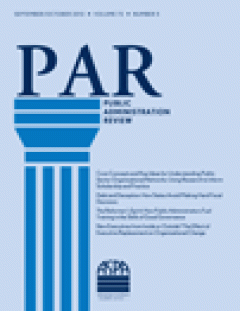Filter by

Editorial: Steps towards the Renovation of Acculturation Research Paradigms: …
Acculturation refers to cultural learning and adjustment in the context of continuous cross-cultural experience. Plato, in his ‘Laws’, considered cross-cultural imitation to be a risk arising from foreign commerce. In the 19th century, European theorists wrote of the amalgamation processes by which diverse peoples were culturally unified for the purposes of the nation-state. In the 20th century…
- Edition
- Vol. 16 no. 3 September 2010. pp. 299-312
- ISBN/ISSN
- 1354067x
- Collation
- -
- Series Title
- Culture Psychology
- Call Number
- -

Phenomenology of Acculturation: Retrospective Reports from the Philippines, J…
Acculturation refers to cultural learning and adjustment in the context of continuous cross-cultural experience. A phenomenology based on retrospective descriptions and analyses of self-observations in acculturation contexts may contribute to the development of theory, constructs, models, and innovative interventions. This phenomenology report focuses on 1) super-ordinate decisions, e.g., to ea…
- Edition
- Vol. 16 no. 3 September 2010. pp. 313-332
- ISBN/ISSN
- 1354067x
- Collation
- -
- Series Title
- Culture Psychology
- Call Number
- -

Acculturation Experiences in Korea and Japan
This article provides new insights into the study of acculturation based on a phenomenological research design, that is, in-depth and conscious descriptions and reflections. The in-depth descriptions illustrate the plurality and complexities inherent in the social networks and languages of highly skilled migrants in foreign countries, which transcend the customary local—foreign dichotomy. In Ko…
- Edition
- Vol. 16 no. 3 September 2010 .pp. 333-348
- ISBN/ISSN
- 1354067x
- Collation
- -
- Series Title
- Culture Psychology
- Call Number
- -

Found in Transition: An Acculturation Narrative of Immigration from the Forme…
This article presents a personal narrative exemplifying acculturation processes and their theoretical analysis. The author describes the development of his Jewish identity in the Soviet Union, emigration, and adjustment to Israel. The author’s affiliations with his ethnic group, the country of origin, and the country of immigration are described and analyzed as an ever-changing process. The rol…
- Edition
- Vol. 16 no. 3 September 2010.pp. 349-363
- ISBN/ISSN
- 1354067x
- Collation
- -
- Series Title
- Culture Psychology
- Call Number
- -

Self-Development and Relationships through Acculturation
The present paper sheds some light on difficulties experienced by Asian immigrant adolescents in North America while undergoing self-development and social relationships within the larger stream of acculturation processes. Given the strong emphasis placed by their original culture on collectivity and hierarchical harmony within the family, and given the family’s evolving lifestyle as new immigr…
- Edition
- Vol. 16 no. 3 September 2010.pp. 365-381
- ISBN/ISSN
- 1354067x
- Collation
- -
- Series Title
- Culture Psychology
- Call Number
- -

Commentary: Liminality in Acculturation and Pilgrimage: When Movement Becomes…
Movement entails both local/short-term and distant/long-term journeys to unfamiliar lands. Psychology has traditionally neglected human-beings-on-the-move to concentrate on fixed structures. Overcoming this oversight, acculturation studies shed light on human beings crossing boundaries, and the authors of these articles bring up the positive side of acculturation (without leaving out the ambiva…
- Edition
- Vol. 16 no. 3 September 2010. pp. 383-393
- ISBN/ISSN
- 1354067x
- Collation
- -
- Series Title
- Culture Psychology
- Call Number
- -

Drawing on the Notion of Symbolic Resources in Exploring the Development of C…
This paper examines the processes by which cultural identities develop through the use of symbolic resources (Zittoun, 2006). The notion of symbolic resources provides a framework that enables one to consider developmental transitions between practices and between historical times. For Portuguese students, these transitions initially involved a rupture, a loss of social resources and linguistic…
- Edition
- Vol. 16 no. 3 September 2010.pp. 395-415
- ISBN/ISSN
- 1354067x
- Collation
- -
- Series Title
- Culture Psychology
- Call Number
- -

Constructing Identity as a Second-Generation Cypriot Turkish in Australia: Th…
This article explores how Cypriot Turkish people in Australia construct their multi-hyphenated identity and the implications this has for their sense of belonging. Ethnic identity is conceptualized as a set of social and cultural understandings, shaped by historical processes, positions of power and patterns of privilege, which people draw on to understand and experience themselves. Ten Cypriot…
- Edition
- Vol. 16 no. 3 September 2010.pp. 416-436
- ISBN/ISSN
- 1354067x
- Collation
- -
- Series Title
- Culture Psychology
- Call Number
- -

Commentary: Making Sense of Immigrant Identity Dialogues
This commentary builds on the contributions of Ali and Sonn (2010), Hale and Abreu (2010) and on the growing literature in the field to extend the discussion on the development of identity for immigrant and ethnic populations. I draw attention to the aspects of both social contexts—country of origin and country of residence—and the ways they shape identity for the populations in question. I exa…
- Edition
- Vol. 16 no. 3 September 2010.pp. 437-448
- ISBN/ISSN
- 1354067x
- Collation
- -
- Series Title
- Culture Psychology
- Call Number
- -

Retrospectives and Prospectives on Hurricane Katrina: Five Years and Counting
New Orleans’ recovery from the damage caused by Hurricane Katrina in 2005 reflects a long, complex, contentious process that still is not complete. In this article, the authors explore the key factors that have supported and hindered recovery so far. Initial conditions within the city, the web of policy demands, as well as recent changes in law and procedures for the region are explored using a…
- Edition
- Volume 70, Issue 5, September/October 2010, pages
- ISBN/ISSN
- 00333352
- Collation
- -
- Series Title
- Public Administration Review
- Call Number
- -

Unanswered Questions about Public Service Motivation: Designing Research to A…
As public service motivation research gains momentum, important questions emerge regarding its origins and consequences that are not addressed by existing research. The authors identify some fundamental public service motivation assumptions, including critical gaps in our current understanding of its basic tenets. The authors then discuss specific research studies that, by virtue of their findi…
- Edition
- Volume 70, Issue 5, September/October 2010. pages
- ISBN/ISSN
- 00333352
- Collation
- -
- Series Title
- Public Administration Review
- Call Number
- -

A Strategy for Building Public Service Motivation Research Internationally
As public service motivation research grows qualitatively and quantitatively, some scholars question its appropriateness for international applications. This essay sets out a strategy of convergence for international research and measurement approaches. Studies that assess commonalities in public service motivation content internationally are analyzed in order to develop a broader conceptual an…
- Edition
- Volume 70, Issue 5, September/October 2010. pages
- ISBN/ISSN
- 00333352
- Collation
- -
- Series Title
- Public Administration Review
- Call Number
- -

Revisiting the Motivational Bases of Public Service: Twenty Years of Research…
How has research regarding public service motivation evolved since James L. Perry and Lois Recascino Wise published their essay “The Motivational Bases of Public Service” 20 years ago? The authors assess subsequent studies in public administration and in social and behavioral sciences as well as evolving definitions of public service motivation. What have we learned about public service motivat…
- Edition
- Volume 70, Issue 5, September/October 2010. pages
- ISBN/ISSN
- 00333352
- Collation
- -
- Series Title
- Public Administration Review
- Call Number
- -

Transformational Leadership and Public Service Motivation: Driving Individual…
- Edition
- Volume 70, Issue 5, September/October 2010. pages
- ISBN/ISSN
- 00333352
- Collation
- -
- Series Title
- Public Administration Review
- Call Number
- -
- Edition
- Volume 70, Issue 5, September/October 2010. pages
- ISBN/ISSN
- 00333352
- Collation
- -
- Series Title
- Public Administration Review
- Call Number
- -

Beyond Bureaucracy—Public Administration as Political Integrator and Non-We…
The political role of public administration holds an ambiguous status in public administration theory. The dominant paradigms of the discipline offer more or less negative perspectives. Max Weber’s notion of bureaucracy conceives public administration as the apolitical tool of government, while the public choice school conceives it as the realm of individual selfishness and rent seeking at taxp…
- Edition
- Volume 70, Issue 5, September/October 2010, pages
- ISBN/ISSN
- 00333352
- Collation
- -
- Series Title
- Public Administration Review
- Call Number
- -

Monitoring across Sectors: Examining the Effect of Nonprofit and For-Profit C…
What is the effect of contractors' nonprofit and for-profit ownership on the scope and nature of performance measurement used by government agencies? Quantitative and qualitative data were generated through semistructured interviews administered to a sample of state and local public agencies and private contractors across five jurisdictions. The findings of this study suggest that monitoring of…
- Edition
- Volume 70, Issue 5, September/October 2010, pages
- ISBN/ISSN
- 00333352
- Collation
- -
- Series Title
- Public Administration Review
- Call Number
- -

Wakeup Call: Strategic Management, Network Alarms, and Performance
New empirical evidence suggests that service performance is shaped by the strategies adopted by public organizations and the networking behavior of public managers. Strategy captures two central behavioral aspects of public organizations: the way in which objectives and actions are selected (processes), and an organization’s approach to service delivery (content). Networking is similarly concer…
- Edition
- Volume 70, Issue 5, September/October 2010, pages
- ISBN/ISSN
- 00333352
- Collation
- -
- Series Title
- Public Administration Review
- Call Number
- -

Analytics and Beliefs: Competing Explanations for Defining Problems and Choos…
The rationale for collaborative environmental management often hinges on two factors: first, specialized training creates biased analytics that require multidisciplinary approaches to solve policy problems; second, normative beliefs among competing actors must be included in policy making to give the process legitimacy and to decide trans-scientific problems. These two factors are tested as dri…
- Edition
- Volume 70, Issue 5, September/October 2010, pages
- ISBN/ISSN
- 00333352
- Collation
- -
- Series Title
- Public Administration Review
- Call Number
- -

Guiding Regionalism and Reform from the Court: Judge John Feikens
the reform of state and local government agencies. Some scholars describe such a judicial role in institutional reform as “managerial.” This profile examines the managerial role of Judge John Feikens, who, since 1977, has supervised the Detroit Water and Sewerage Department's attempts to comply with federal laws on wastewater treatment and water quality. Through his sustained, effective oversig…
- Edition
- Volume 70, Issue 5, September/October 2010, pages
- ISBN/ISSN
- 00333352
- Collation
- -
- Series Title
- Public Administration Review
- Call Number
- -

A Report On Reporting: Why Peers Report Integrity and Law Violations in Publi…
The archives of three bureaus of integrity are analyzed in order to study the reasons for reporting integrity and law violations within public organizations. Peer reporting accounts for only a small percentage of cases; most investigations originate from routine and continuous institutional controls. What are the reasons peers choose to report or not report? A sense of justice is most important…
- Edition
- Volume 70, Issue 5, September/October 2010, pages
- ISBN/ISSN
- 00333352
- Collation
- -
- Series Title
- Public Administration Review
- Call Number
- -
 Computer Science, Information & General Works
Computer Science, Information & General Works  Philosophy & Psychology
Philosophy & Psychology  Religion
Religion  Social Sciences
Social Sciences  Language
Language  Pure Science
Pure Science  Applied Sciences
Applied Sciences  Art & Recreation
Art & Recreation  Literature
Literature  History & Geography
History & Geography